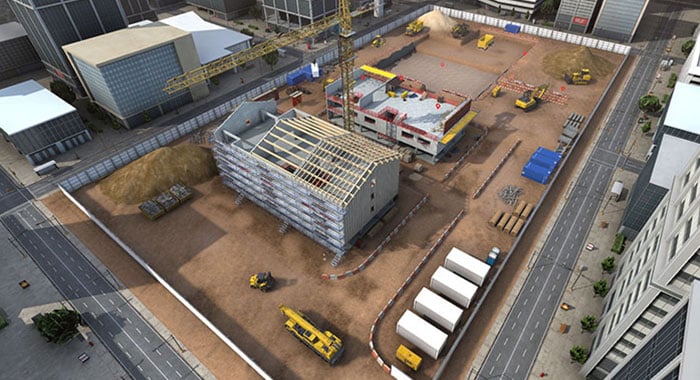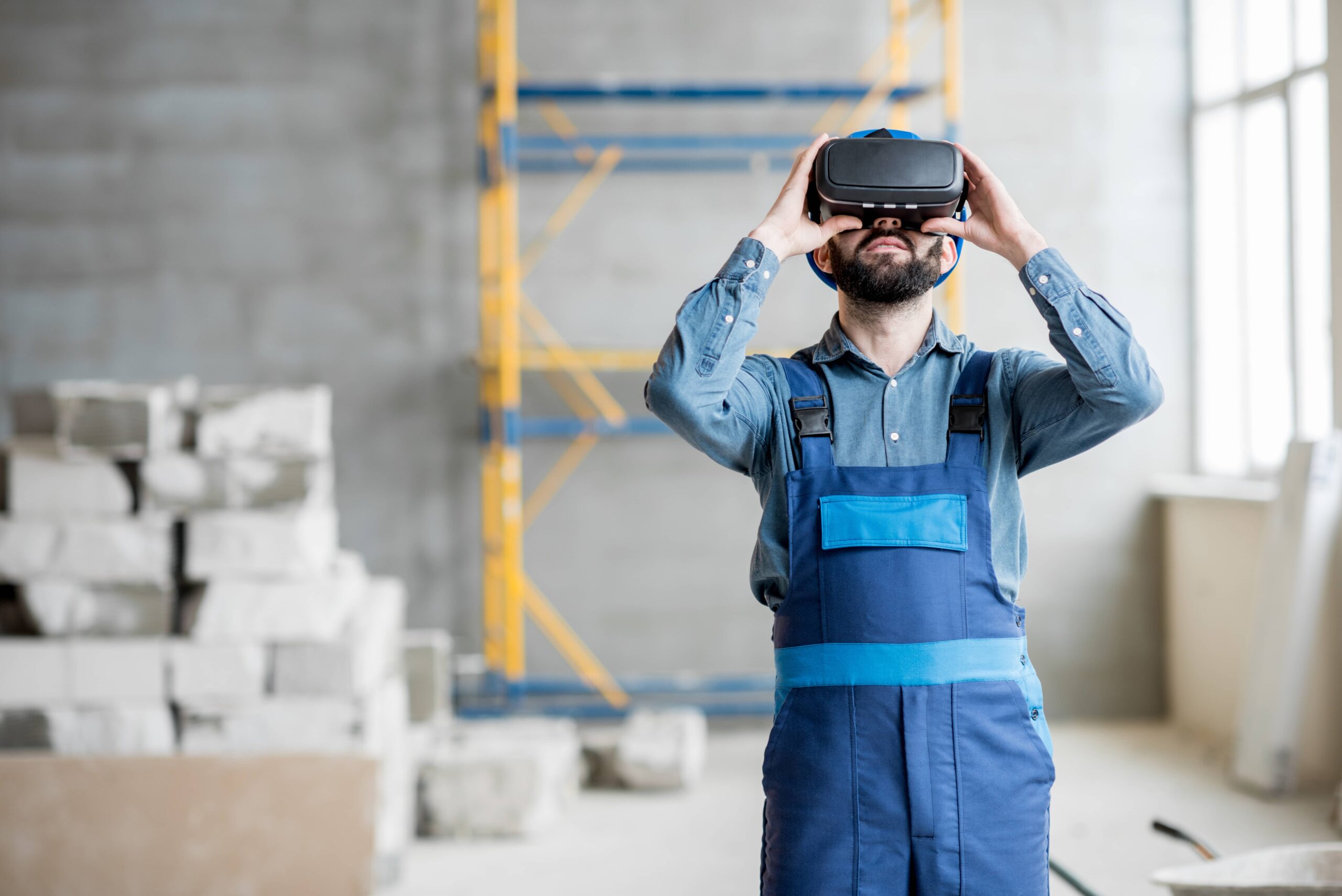The building and public works sector is in constant evolution. It is a sector that must face many challenges.
Among them, the training and recruitment of a workforce that is becoming increasingly rare.
Virtual reality provides a solid answer to these challenges.
Virtual reality: what impact on training in the construction industry?
1. Learn the tools and adopt the right reflexes
Professional training is a crucial issue for the construction sector. The latest standards and techniques must be mastered to guarantee the safety of construction sites and the quality of construction.
Employees must also acquire the right reflexes to preserve their health. The tools they handle can be heavy and difficult to manipulate. It is important that they learn to handle them properly to avoid injury or damage to the equipment.
The nature of their work can also be strenuous. Workers need to adopt the right postures to maintain their health.
Knowing this, virtual reality training makes sense. It’s the best way to learn and appropriate these tools without risk. Immersed in this virtual world, learners can test, fail and then succeed as many times as necessary. Once they have mastered the tools, they will be much more confident to use them in real life.
During the training, the trainer will also be able to monitor and correct the learners’ posture. These behaviors should be identified as early as possible in the training to avoid them becoming reflexes that will be difficult to erase later on.

2. Risks hunting
Construction sites are environments where risks can be numerous. It is important for future workers to have the right automatisms. These automatisms are important in order not to put other workers in danger.
Construction sites also have many rules and standards that must be respected. Without this, the workers can endanger their physical integrity as well as that of their comrades.
Virtual Construct allows you to immerse your learners in a construction site. They will be able to move around freely in order to identify the different dangers that they face. They will then have to take the necessary measures to secure the area.
These hazard hunts are a great way to identify if your learner is ready to go to a safe work site.
3. Learning a trade
The construction world is an ecosystem unto itself. It includes many different trades. Virtual Construct allows you to immerse yourself and discover these different trades. Beyond the discovery, learners and trainers will be able to deepen the experience to begin to truly learn about these trades.
Indeed, they will be able to visit virtual construction sites, learn the right reflexes, discover different trades and train effectively. Learners can practice their skills in complete safety, confront real problems and learn to manage them calmly.
Virtual reality in recruitment: what impact?
Virtual Construct can be very useful for companies that work with temporary or seasonal workers.
Indeed, these workers often need a quick training to be able to start their work on construction sites. The virtual reality training allows to train these workers quickly. By giving them a practical and immersive experience, they will be able to quickly understand good practices and safety rules.
They will therefore be more confident in implementing these practices. They will also be operational and efficient more quickly.
In addition, the MIMBUS Construct solution can be used to assess the skills and abilities of candidates at entry. Recruiters can propose practical exercises in virtual reality. This practice simulates realistic situations and measures the ability of candidates to manage complex tasks.
This evaluation method is more accurate and objective than traditional interview methods. It will allow recruiters to ensure that candidates are suitable for the position. Recruiters will also be able to select the most qualified candidates for positions that are more in demand.



